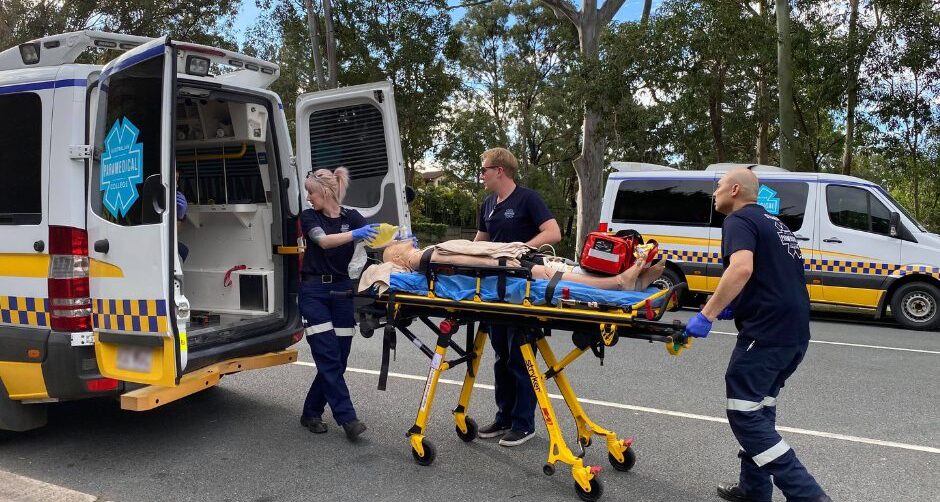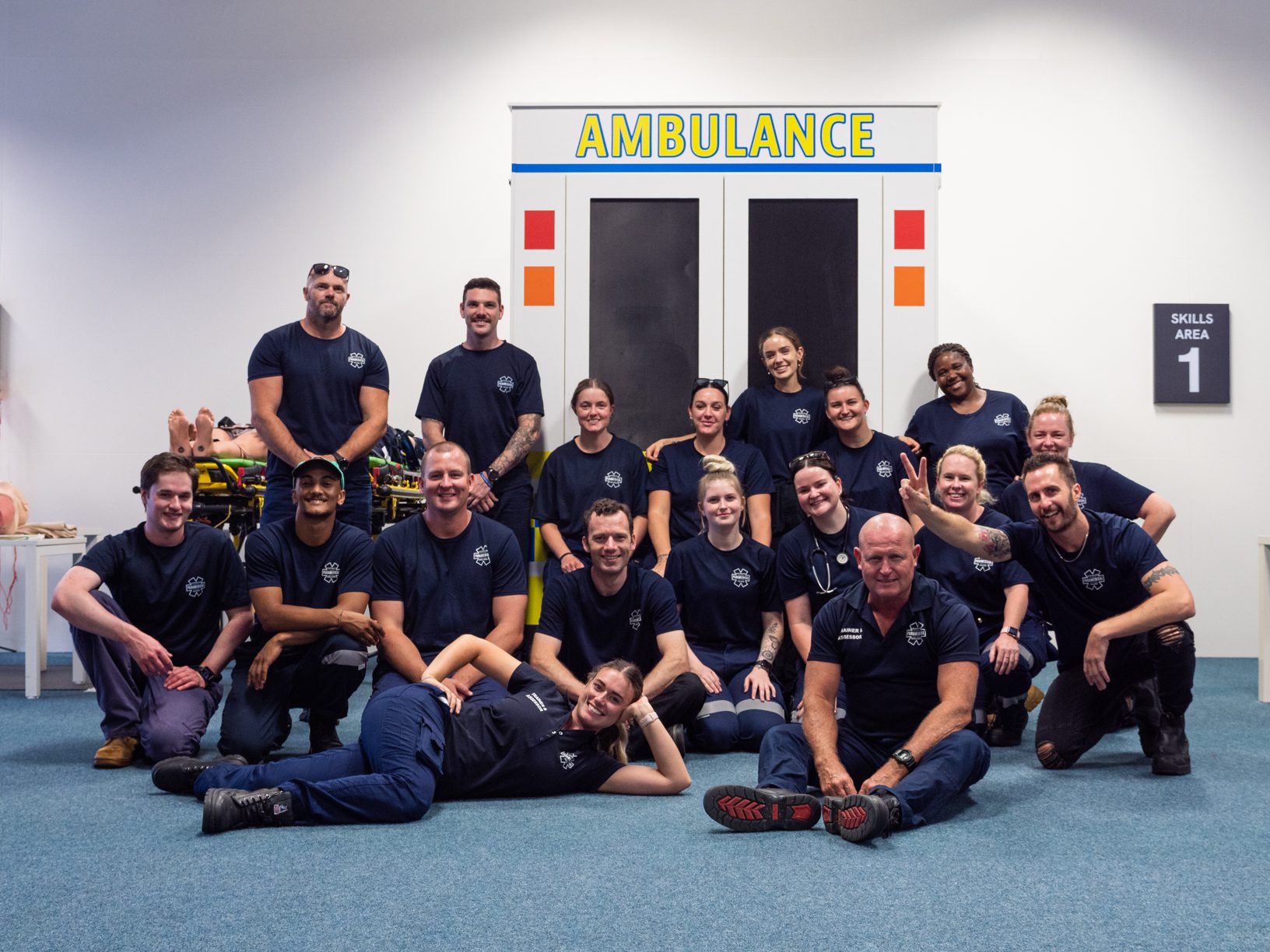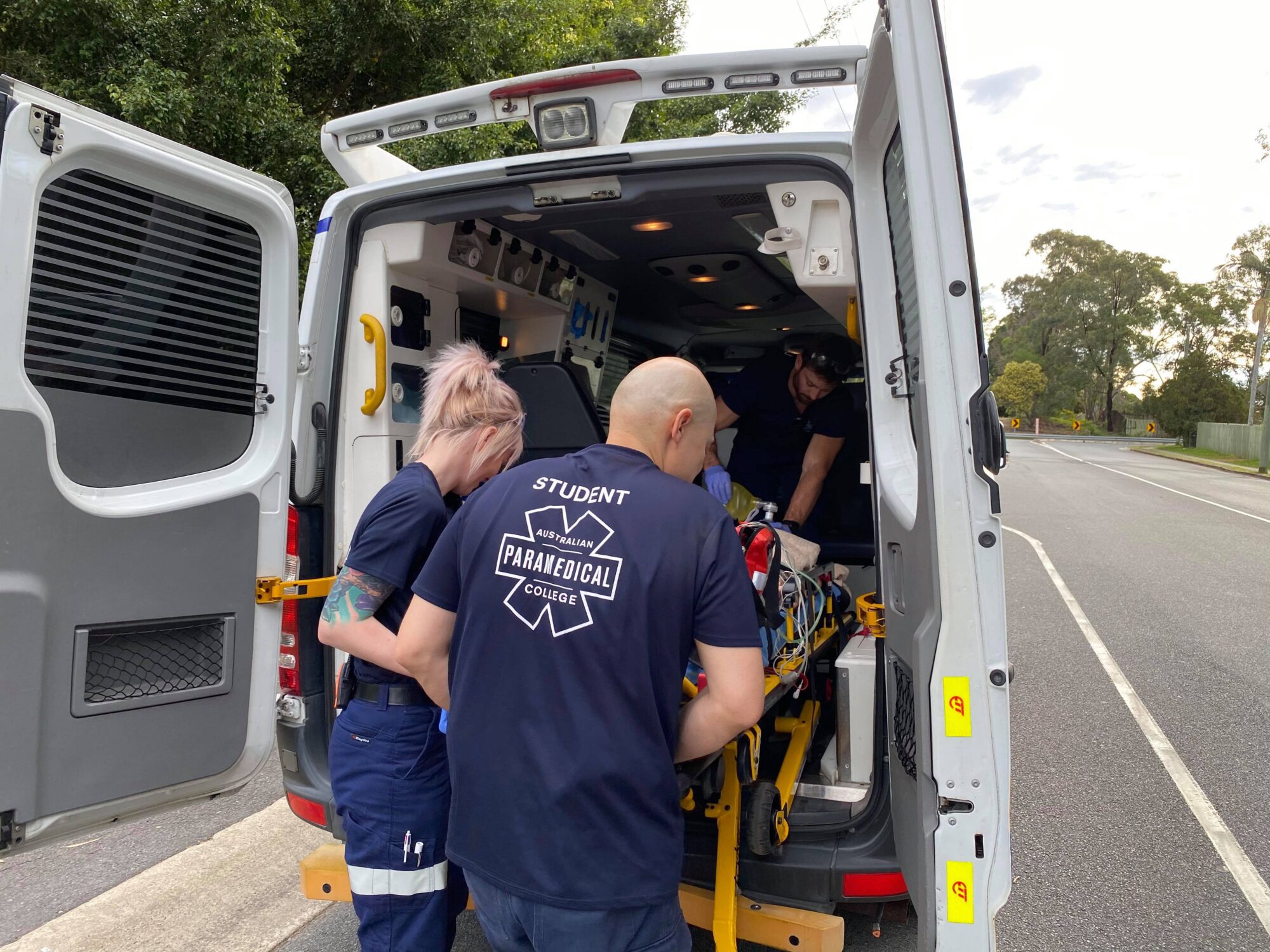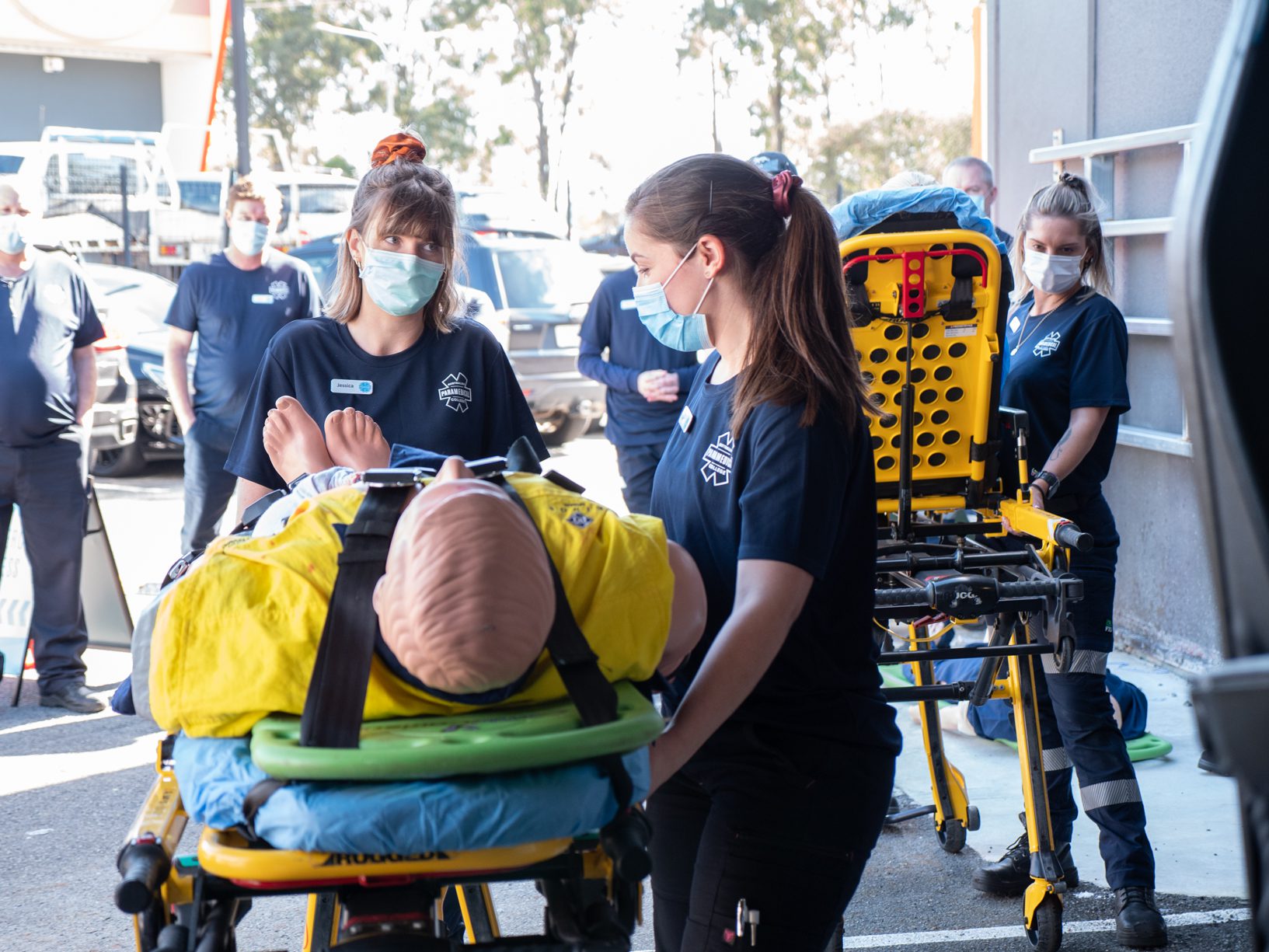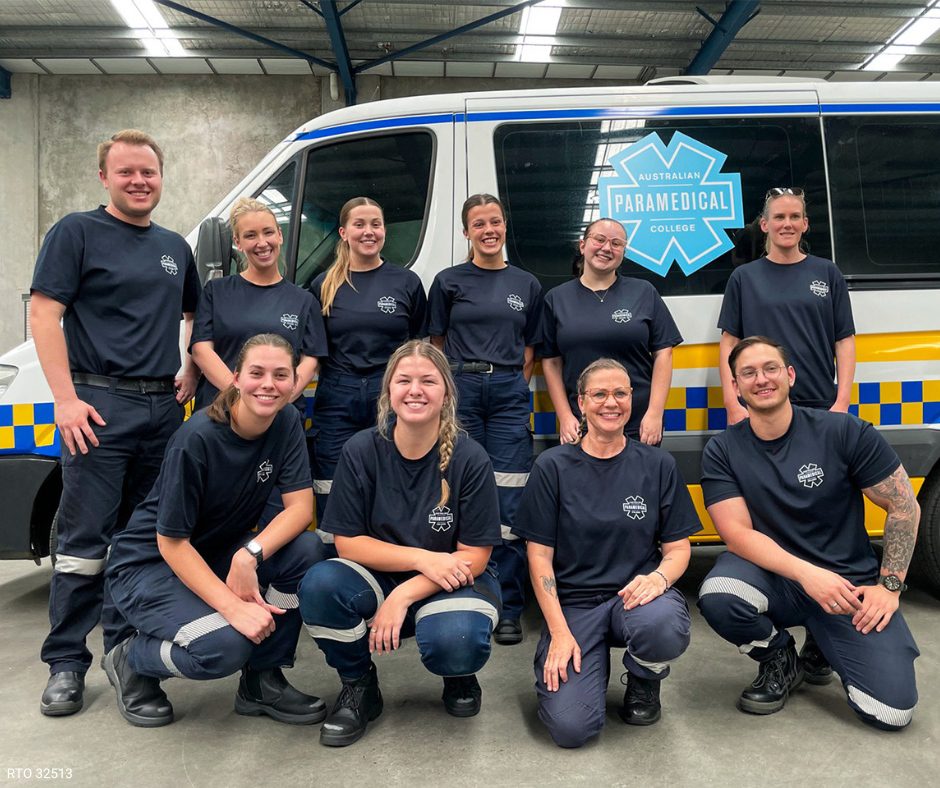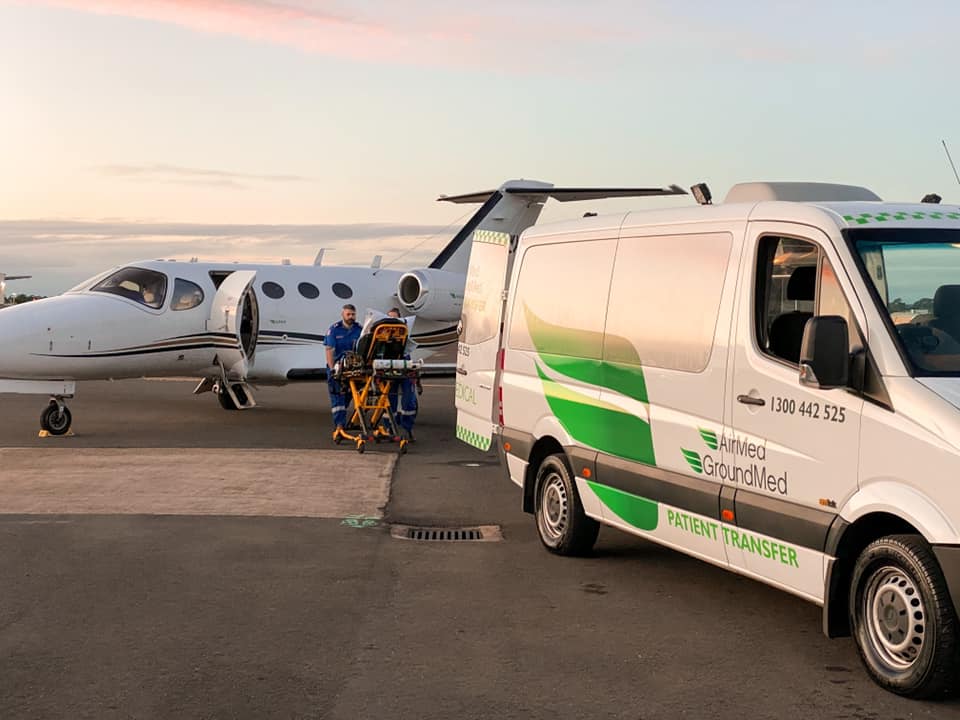Course Overview
What you’ll learn
This nationally recognised qualification will qualify you to become a Patient Transport Officer (PTO) and is the ideal first step into a career in healthcare.
Patient transport is a service provided for patients whose condition is non-life threatening and who cannot transport themselves to and from their home to a medical facility. The interactions that a patient has with their patient transport officer can make a huge difference in their medical care experience, putting them at ease and ensuring they feel cared for.
No experience is necessary to start this patient transport course, you’ll learn all the theory online and build your practical, hand-on skills in a 5-day clinical workshop.
How it works
- Flexible online study and expert guidance from trainers who are qualified and experienced medics and paramedics.
- 1 x 5-day clinical workshop, at our NSW, VIC, or QLD campus locations where you’ll apply your learning in a practical, hands-on environment.
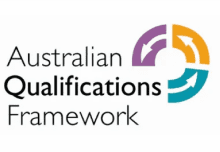
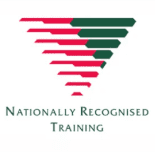
Flexible study
Choose your own schedule and fit study into your lifestyle or work roster
Quality education & training
Developed by industry-trained and qualified healthcare experts
Supportive community
Learn alongside and be supported by your peers and APC’s dedicated team who are committed to helping you
Overview
Location
Delivery mode
Course duration
(may reduce depending on study load)
Upcoming intake
Why choose a career in Non-Emergency Patient Transport?
Non-emergency patient transport is a critical and growing part of Australia’s healthcare system — and the demand for qualified Patient Transport Officers (PTOs) is increasing. In particular, job opportunities are expanding across Victoria, New South Wales, and Queensland, where private healthcare providers, ambulance services, and hospitals rely on trained PTOs to support daily operations.
Major employers such as Medical Edge, St John, Airmed, Groundmed and others partner with APC to actively recruit skilled students and offer flexible employment arrangements, including full-time, part-time, and casual roles.
This career offers a practical, stable entry into healthcare with real impact — every day, you’ll support patients by ensuring they feel safe, comfortable, and cared for during their medical journeys. It’s a role that combines technical skill, compassion, and professionalism.
If you’re seeking a meaningful job that gets you moving, helps people directly, and opens doors to further healthcare study, non-emergency patient transport could be your ideal path.
Is HLT31120 Certificate III in Non-Emergency Patient Transport right for you?
If you’re compassionate, reliable, and enjoy helping others, a career in non-emergency patient transport may be your ideal path into the healthcare industry. As a Patient Transport Officer, you’ll build the skills to respond calmly in diverse situations, communicate effectively, and ensure safe, dignified patient transfers.
This course is a great fit for:
-
New entrants to healthcare looking for a practical, hands-on role that doesn’t require prior experience
-
Career changers seeking meaningful work that balances structure with independence
-
Parents and caregivers who need flexible work options that fit around family commitments
-
University students studying health-related degrees who want paid clinical experience alongside their studies
-
Drivers or logistics professionals wanting to move into the health sector
-
Former defence or emergency services personnel exploring a civilian healthcare career
With options for part-time or flexible shift work, becoming a Patient Transport Officer offers both job security and a healthy work–life balance — while laying the foundation for further study in paramedicine, nursing, or emergency health care.
Course Structure
What you’ll learn
The HLT31120 – Certificate III in Non-Emergency Patient Transport is an entry-level qualification that is the first step into the career of healthcare.
- This course is specifically designed to help you gain employment as a Patient Transport Officer (PTO) when you graduate. It can also be used as a pathway into further healthcare studies.
- You’ll learn how to communicate with patients and medical teams, and transport patients effectively in non-emergency settings.
- Through online study and a clinical workshop, you’ll gain advanced first aid skills and the practical ability to provide advanced resuscitation and oxygen therapy.
Units of study
To be awarded the HLT31120 Certificate III in Non-Emergency Patient Transport, you’ll need to complete the following 13 units
- BSBMED301 – Interpret and Apply Medical Terminology Appropriately
- HLTAAP001 – Recognise Healthy Body Systems
- HLTOUT010 – Communicate in Complex Situations to Support Healthcare
- HLTOUT007 – Transport Non-emergency Patients Under Operational Conditions
- HLTWHS002 – Follow Safe Work Practices for Direct Client Care
- HLTAID011 – Provide First Aid
- HLTOUT001 – Implement Safe Access and Egress
- HLTAID014 – Provide Advanced First Aid
- HLTWHS005 – Conduct Manual Tasks Safely
- HLTAID015 – Provide Advanced Resuscitation and Oxygen Therapy
- CHCDIV001 – Work with Diverse People
- HLTWHS006 – Manage Personal Stressors in the Work Environment
- HLTINF006 – Apply basic principles and practices of infection prevention and control
How you’ll learn
We provide an award-winning online learning experience that adapts to your lifestyle. In 2024, we were proud to receive the Training Excellence Award, at the Australian Business Awards for our course design, which underscores the quality and relevance of our training.

With our flexible online platform, you can complete your units and assessments anytime, anywhere, giving you the freedom to study at your own pace. The platform is designed to engage you through dynamic content and interactive modules, providing a strong theoretical foundation in emergency healthcare. Whether you’re at home, on the go, or balancing work and study, our online system allows you to learn wherever it’s most convenient for you.
Our online learning is paired with expert support and resources to help you succeed. You’ll have everything you need to complete your coursework and prepare for the hands-on elements of the program, like workshops and clinical placements.
Clinical Workshops are a key component of the course, giving you the chance to apply what you’ve learned online in a hands-on environment. These workshops are held in cutting-edge facilities across New South Wales, Victoria, and Queensland. Here, you’ll practice real-world skills and gain vital experience in emergency healthcare scenarios. The 5-day workshop will give you the opportunity to refine both your theoretical and practical knowledge, which is widely considered one of the most valuable aspects of the course.
Entry Requirements
To be admitted to this course, you must meet specific eligibility requirements. When reviewing your application, we consider these factors to ensure you are prepared for both the academic and practical components of the course.
- Age: Applicants must be at least 16 years old (parental consent is required for applicants under 18).
- Education & Experience: No prior experience of qualifications required.
- Residency: Applicants must be an Australian or New Zealand citizen, an Australian Permanent Resident, or hold an approved temporary visa.
- Driver’s License: A current driver’s license is required. Learner’s licenses are acceptable for enrolment, but a provisional (P) license is required before attending your Clinical Workshop.
- Technology: Applicants must have regular access to a computer and internet, and be comfortable with online study.
- Language, Literacy, and Numeracy: A short quiz will assess basic English and math skills to ensure students are prepared for the course.
- Health: A medical declaration is required confirming that the student is fit to study and can perform the necessary physical tasks, including lifting up to 25kg, bending, twisting, and uninterrupted CPR for up to 15 minutes.
Clinical Workshops, prior to the time of booking:
- Students must complete all required theoretical components prior to booking their attendance at a clinical workshop.
- First Aid (HLTAID011) and CPR (HLTAID009) certification is mandatory for Australian students. New Zealand students must hold comprehensive First Aid certification (NZQA Standards 6402, 6401, 6400).
- Students are required to purchase black safety boots (usually around $40-50) and navy blue work pants (usually around $20-30) for their clinical workshop and placement. Students will be provided with an APC tee–shirt, and may purchase additional tee-shirts (optional).
Credit Transfer & RPL
Both CT and RPL offer valuable opportunities to help you complete your course faster. Speak to an APC course advisor today to determine your eligibility and find out how we can help you accelerate your studies.
Credit Transfer is available to students who have previously completed units of study that are equivalent to those in the HLT31120 Certificate III in Non-Emergency Patient Transport. Successful CT applications can reduce your course fees and may shorten the duration of your studies by giving you credit for units you have already completed.
RPL is available for students who have gained skills and knowledge through work experience or informal training. After you’ve enrolled in the course, an RPL application can be submitted to assess whether your prior learning aligns with the course competencies. While RPL may reduce the number of units you need to complete, it does not affect the price of your course. Our team will guide you through the process to ensure that your experience is accurately recognised and assessed.
Funding Options
If you haven’t connected with an APC Course Advisor yet to discuss course fees, we would recommend you to do so to ensure you know the best payment options to invest in your future. In the meantime, explore our course funding options listed below.
Many students choose to pay for their course upfront as it allows for stress-free finances while working towards a new career or upskilling in the workplace. By paying upfront, you can focus entirely on your education without any ongoing financial obligations.
If you’re unsure how to finance your studies, APC’s payment plans are a popular and easy-to-apply option.
When you speak with your APC Course Advisor, they’ll walk you through the available options and help you customise a plan fit to your needs. Whether you prefer weekly or fortnightly payments or want flexibility in the repayment duration, we can tailor the schedule to suit your financial situation. Plus, you have the option to make bulk payments if you wish to pay off your course sooner.
HLT31120 Certificate III in Non-Emergency Patient Transport Employment Pathways
From APC student to employed Patient Transport Officer (PTO)
A Patient Transport Officer (PTO) is responsible for providing transport for patients to and from medical facilities. Additionally, they are in charge of maintaining and operating patient transport vehicles and providing excellent customer service to patients.
The interactions a patient has with a PTO can make a huge difference in their medical care experience, putting them at ease and ensuring they feel cared for.
Becoming a PTO could be a rewarding career path if you enjoy driving and connecting with a range of people from different generations, cultures and backgrounds. Many of our graduates work with some of the biggest employers in the industry, many of whom are also our Industry Partners.
Additionally, many students choose to work part-time or casually in the industry while pursuing further study at university to become a paramedic. This allows them to gain valuable real-world experience while continuing their education, setting them up for a successful and rewarding career in the healthcare field.
Consider studying our HLT51020 Diploma of Emergency Health Care for more employment and further study pathways.
Partnered with Industry for Real Career Outcomes
We’re proud to partner with over 20 established organisations across Australia and Aotearoa New Zealand, including St John, AirMed & GroundMed, Fire & Safety Aus, Medical Edge and many more, creating employment opportunities for our students and graduates. Learn more here.

APCStudent Stories
Hear directly from our students as they share their journeys, experiences, and the impact APC had on their healthcare careers. See many more student story videos here.
Paris, APC graduate
Paris gained employment as a Patient Transport Officer with AirMed while studying with APC.
Tasha, APC graduate
Tasha gained employment as a Patient Transport Officer with Medical Edge upon graduating with APC.
Lou, APC graduate
After 32 years in the Defence Force, Lou changed careers and found her passion through Non-Emergency Patient Transport.
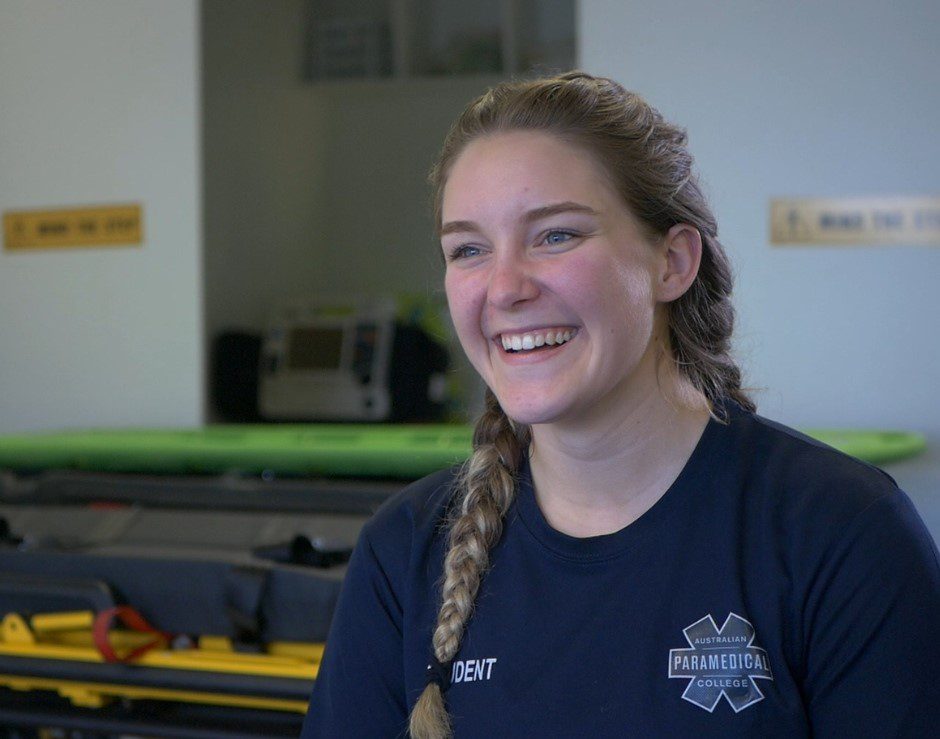
I chose APC because of the flexible learning. I prefer online study and can set my own pace, which is great with my unpredictable work hours. The support has been fantastic, and even with placement, the team is always there to help if you need assistance.
Tyler Franklin, APC graduate
Download the course overview
Complete the form below to receive a comprehensive course overview
By downloading the course guide, you agree to our Privacy Policy. You can opt-out at any time.
Trusted by Students and Industry Leaders
Thousands of students have chosen APC to launch their careers in emergency healthcare. We’re also trusted by major employers across Australia and New Zealand—many of whom hire directly from our graduate pool. Read what our students have to say on Google and Trustpilot.
Ready to take the next step?
Apply using through our application form and one of our experienced Career Advisors will give you a call to discuss your pre-hospital healthcare course options and answer any questions you have.
